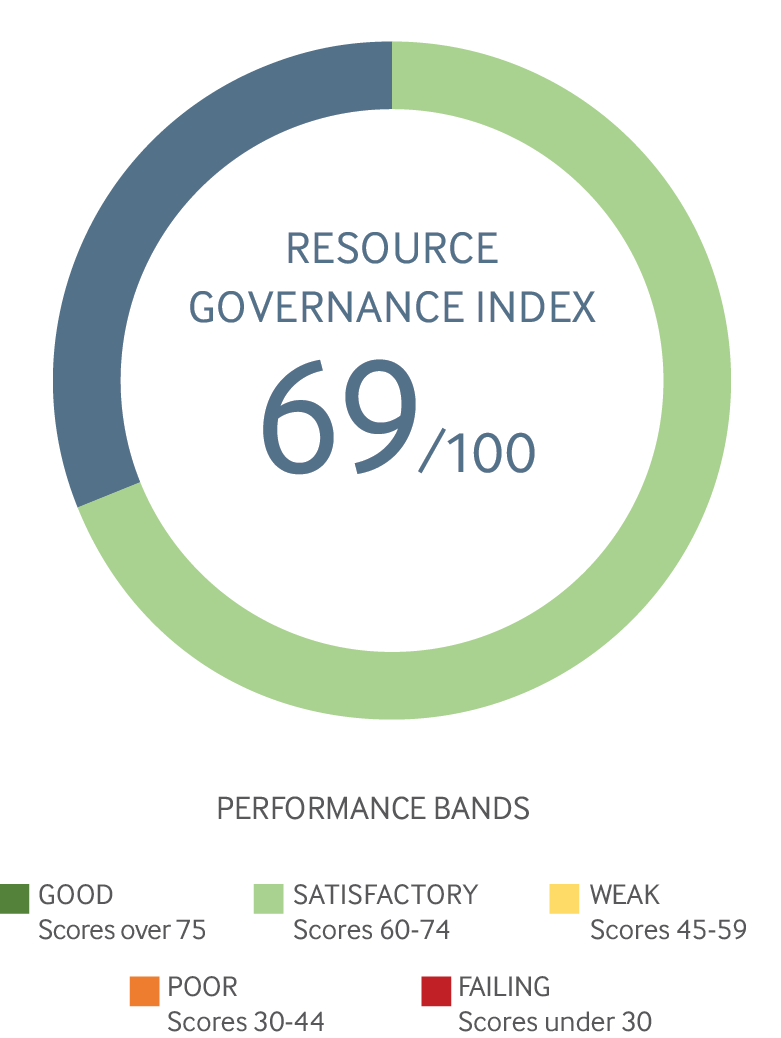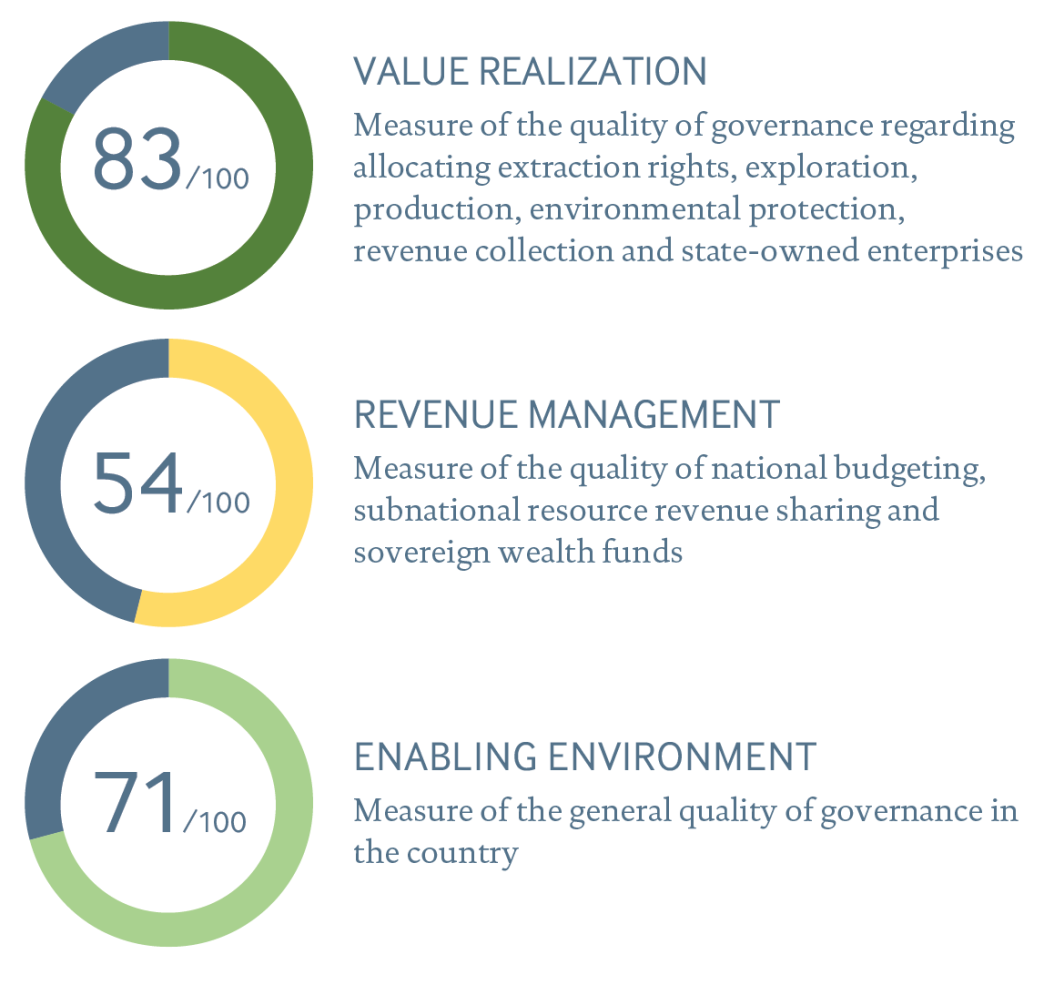
2021 Resource Governance Index: Ghana (Mining)
Read the press release.
View the launch event »
Ghana’s gold mining sector scored 69 out of 100 points in the 2021 Resource Governance Index (RGI), improving by 13 points since the 2017 RGI. Stronger resource governance was driven by improvements across both the index’s value realization and revenue management components, with notable increases in governance of local impacts and national budgeting.
Recommendations
View the launch event »
Ghana’s gold mining sector scored 69 out of 100 points in the 2021 Resource Governance Index (RGI), improving by 13 points since the 2017 RGI. Stronger resource governance was driven by improvements across both the index’s value realization and revenue management components, with notable increases in governance of local impacts and national budgeting.
- Key areas within the licensing and subnational resource revenue sharing subcomponents were still classified as “failing,” reinforcing the need for legislation and further disclosures.
- Within value realization, the taxation subcomponent increased by 10 points to score 82 out of 100 points, moving it into the “good” performance band, while local impact improved by 29 points, scoring 100.
- Ghana’s national budgeting governance improved due to the adoption of, and adherence to, fiscal rules.
- While both law and practice scores improved since the 2017 RGI, the gap between them grew from -8 to -15 points. Enacted laws and rules must be adhered to by relevant state authorities to prevent the implementation gap from growing wider.
- Weak adherence to open data standards, as well as the absence of online data portals related to the extractive sector, has held the mining sector back.
- Ghana’s oil and gas sector outperformed the older gold mining sector owing to enhanced transparency and accountability in the oil and gas sector legislative framework.
Recommendations
- The Ministry of Lands and Natural Resources and the Mineral Commission should accelerate and leverage the on-going review of the Minerals and Mining Act 2006 to strengthen the legal framework governing the mining sector. Legislation must be improved to enhance disclosures in licensing, beneficial ownership information as well as asset declaration by public officials.
- Relevant government agencies and ministries should adhere to open data principles in line with commitments made through Ghana’s Open Government Partnership National Action Plan.
- The Ministry of Lands and Natural Resources, the Finance Ministry and the Minerals Commission should ensure compliance and enforcement of existing laws in the mining sector. If the implementation gap widens, companies and citizens could lose faith in the legal framework. Newly passed laws, such as the local content law, may therefore not translate to improved local impacts in the mining sector.
- Prestea Sankofa Gold Limited should study GNPC’s transparency practices and adopt best practice approaches to state enterprise governance before resuming operations.
- The Ministry of Finance and the Ministry of Energy, along with other key governmental actors, should collaborate with civil society organizations, and the Ghana EITI to ensure that Ghana meets the standard requirements of the EITI.

